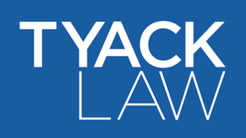In State v. O'Malley, Slip Opinion No. 2022-Ohio-3207 (decided September 15, 2022), the Ohio Supreme Court upheld the use of a state law that requires certain OVI offenders to forfeit their vehicles.
A Supreme Court majority opined that a Medina County man's constitutional rights against excessive fines were not violated when he was ordered by the court to forfeit his $31,000 truck after his 3rd drunk driving violation in 10 years.
The majority opinion interpreted the relevant law, R.C. 4511.19(G)(1)(c)(v) and R.C. 4503.234, as reflecting the Ohio legislature's intention to mandate forfeiture of a vehicle involved in a third OVI offense when: (1) the defendant has two prior OVI convictions within ten years of the third OVI offense; (2) the defendant is convicted of the third OVI offense; and (3) the vehicle involved in the third OVI offense is registered in the defendant's name.
Writing for the Court majority, Justice Fischer stated there is no simple bright-line test to determine whether a fine or forfeiture is excessive. Relying upon tests used in prior cases by the Supreme Court of the United States and the Ohio Supreme Court, the majority concluded in O'Malley that the forfeiture did not constitute excessive punishment under the Eighth Amendment to the United States Constitution. (Of note, O'Malley did not invoke Article I, Section 9 of the Ohio Constitution, which also prohibits "excessive fines." So, the Ohio Supreme Court did not consider whether the Ohio Constitution provided greater protections than did the Eighth Amendment to the United States Constitution.) The majority also rejected O'Malley's argument that the the statutory classification contained in R.C. 4511.19(G)(1)(c)(v) (forfeiture of the vehicles owned and driven by persons who have 3 OVI convictions within 10 years) does not violate the Equal Protection Clause of the Fourteenth Amendment to the United States Constitution or Article I, Section 2 of the Ohio Constitution.
In a dissenting opinion, Justice Michael P. Donnelly opined the forfeiture of a $31,000 truck was excessive, noting that the value of the truck was more than 11 times the maximum fine for a misdemeanor OVI charge, is excessive. Justice Donnelly highlighted that this certainly was an excessive penalty for O'Malley because it was the only significant asset that the defendant owned. The dissent also discussed research showing that imposing higher fines will not deter crime. To the contrary, levying steep fines that cause people great financial distress often leads to continued substance abuse and criminal behavior. Justice Jennifer Brunner joined Justice Donnelly’s dissenting opinion.
Talk with an experienced Lawyer today
Fill out the form to get started with your case evaluation.













